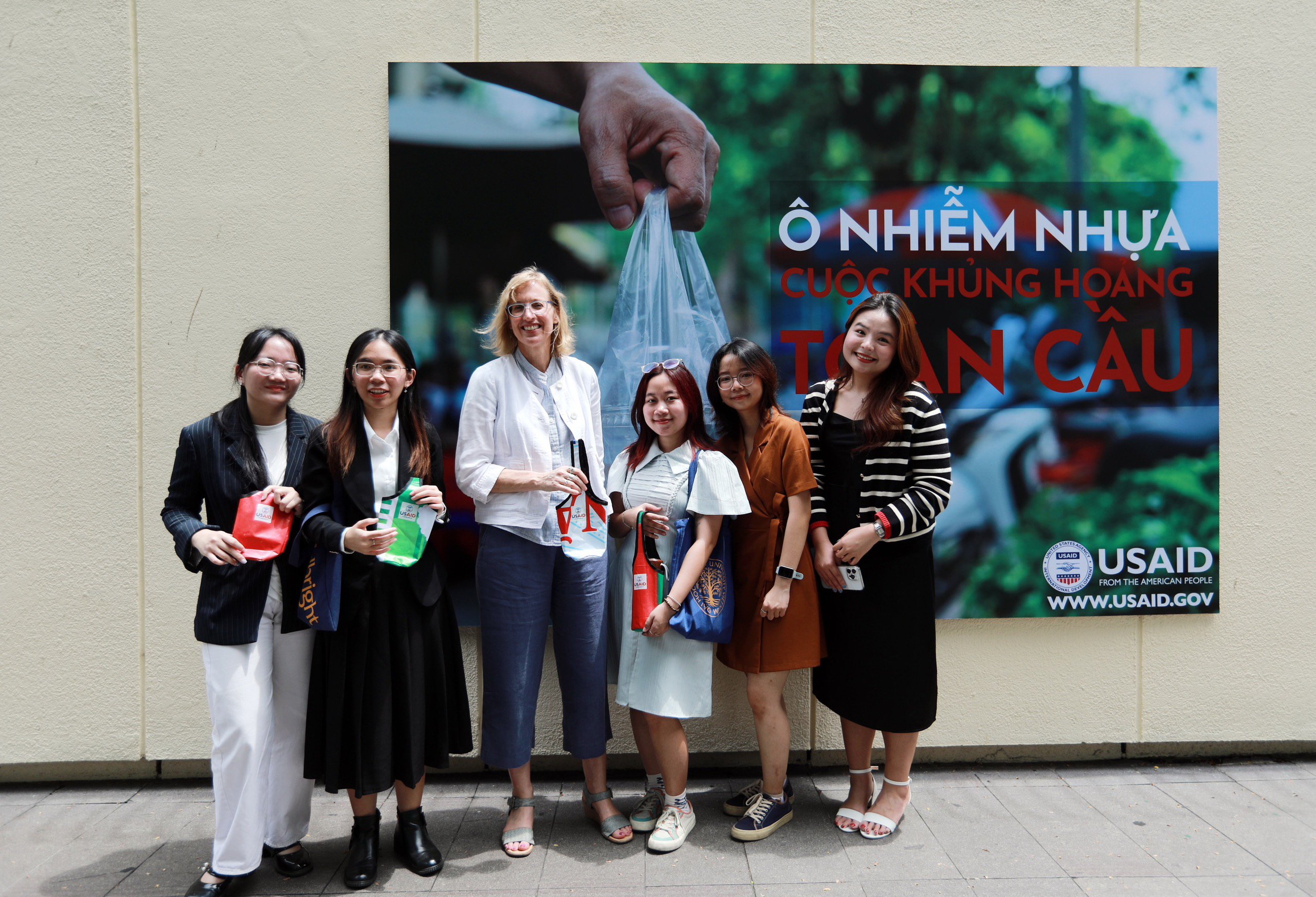
US Consul General in Ho Chi Minh City Susan Burns and students of Fulbright University Vietnam
Ms. Nguyen Thi Dep (54 years old) lives in Binh Thanh District (HCMC). Previously, like other scrap collectors, every day she pushed her bulky cart along the routes where she thought she could pick up scrap. She braved the sun and rain just to earn more money to improve the livelihood of her small family.
Collecting scrap in the technology era
Everything changed when she joined the scrap collection model on the VECA app, which stands for Scrap Technology. "Before, I had to push a cart, but now I just need to pick up my phone, see a notification message, and ride my motorbike to the seller's house to buy scrap. It's much easier than before," said Ms. Dep.
Mrs. Dep boasts that collecting scrap metal this way is less tiring and she can collect all kinds of scrap metal, thus increasing her income 5-6 times compared to pushing a cart the old way and leaving it to chance. She also boldly dreams that her income could increase 8-9 times if VECA develops further.
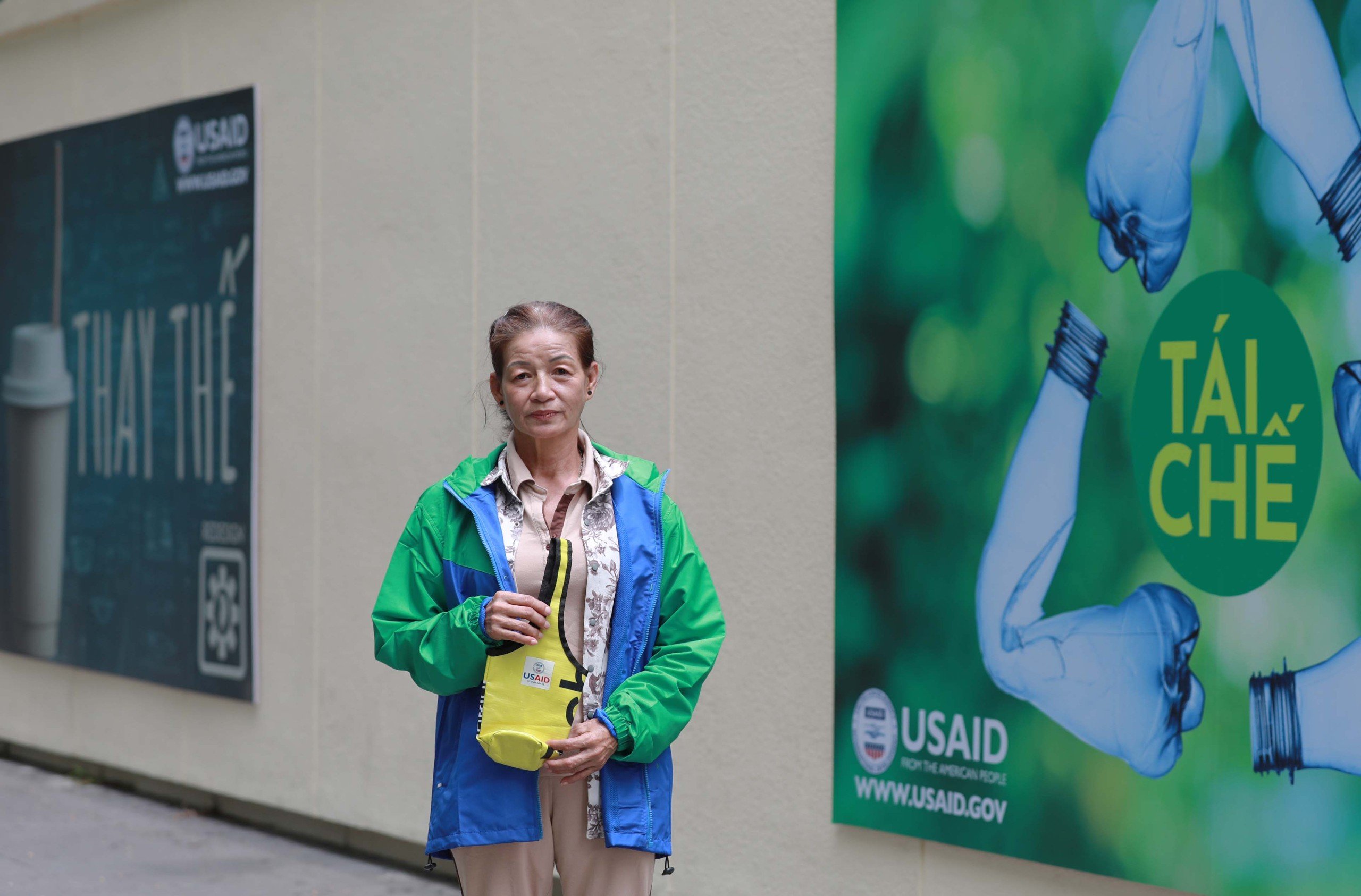
Ms. Nguyen Thi Dep (54 years old) joined VECA from 2021
Operating as a technology-based car booking application, the VECA application, founded by Mr. Bui The Bao, connects people who want to sell scrap with collectors who come to buy it on site. Mr. Bui The Bao said that the idea of VECA was born in 2018, and officially started operating in 2021 and has been operating to this day.
Currently, the technology application Ve chai is trying to "cover" 19 districts, connecting people who need to sell scrap and buyers. Besides creating more income for those who make a living by buying scrap, this approach also allows sellers to raise environmental awareness, conduct waste sorting at the source in households, companies, and businesses.
Mr. Bao said that VECA has so far recorded more than 43,000 uses, many of whom are truly concerned about the environment, and there are also people who are curious about what it is like to sell scrap metal through the app.
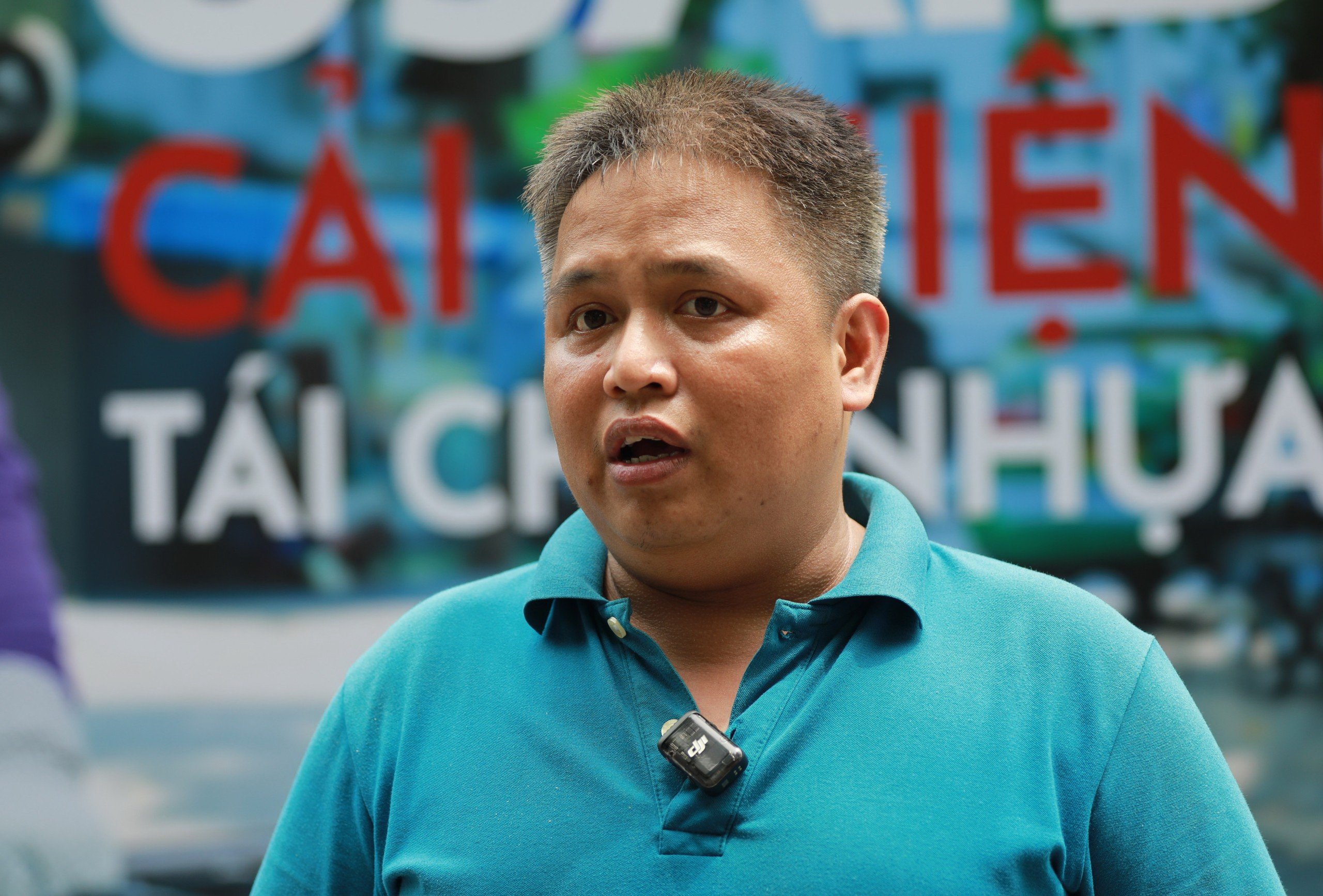
Mr. Bui The Bao, founder of VECA
From 2023, VECA will begin receiving support from USAID. In addition to financial issues, USAID also provides orientation support for VECA to develop sustainably and expand its network of partners. Mr. Bao shared that with support from USAID, VECA will shift its focus to entities such as companies, supermarkets, and schools, and will install classified trash bins here, allowing people to collect scrap periodically.
According to the founder of VECA, the above approach is said to encourage companies and businesses to be more responsible in classifying waste at the source and thereby creating a more widespread impact.
Refuse bottled water
Scrap collectors like Ms. Dep have appeared in the USAID-organized “Reduce Plastic Waste” mural collection to raise awareness of the global plastic pollution crisis. From now until December 15, the collection will be exhibited on the wall of the US Consulate General in Ho Chi Minh City on Le Duan Street, District 1.
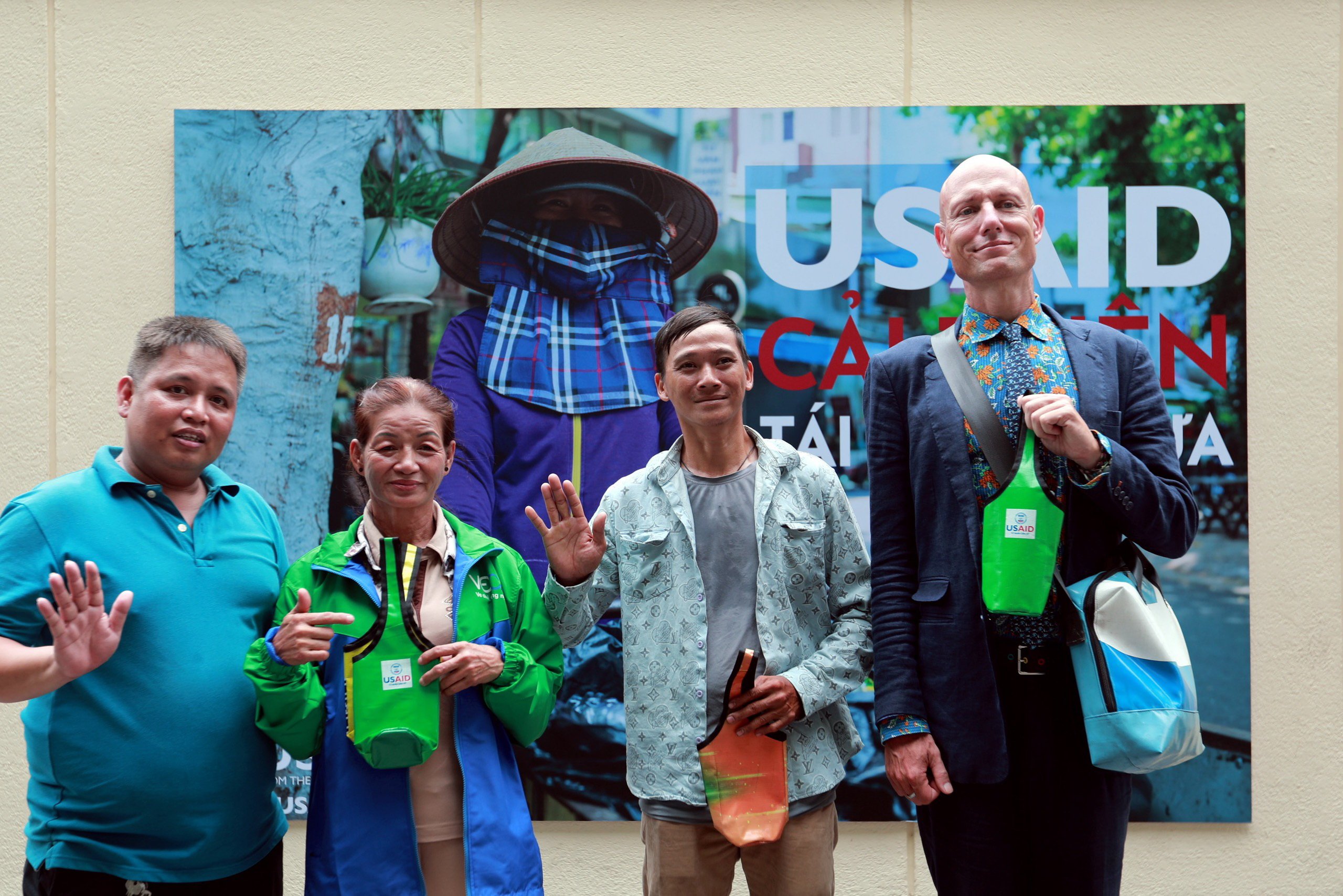
VECA Team and USAID Acting Administrator Bradley Bessire
The exhibition reflects the special interest of Ms. Susan Burns, US Consul General in Ho Chi Minh City, in environmental protection, including reducing plastic waste.
During the first interview of her term with Thanh Nien at Le Duan Flower Street on the occasion of the Year of the Cat, Ms. Burns refused to drink bottled water even though she forgot to bring her own water bottle despite the scorching heat of the days leading up to the New Year.
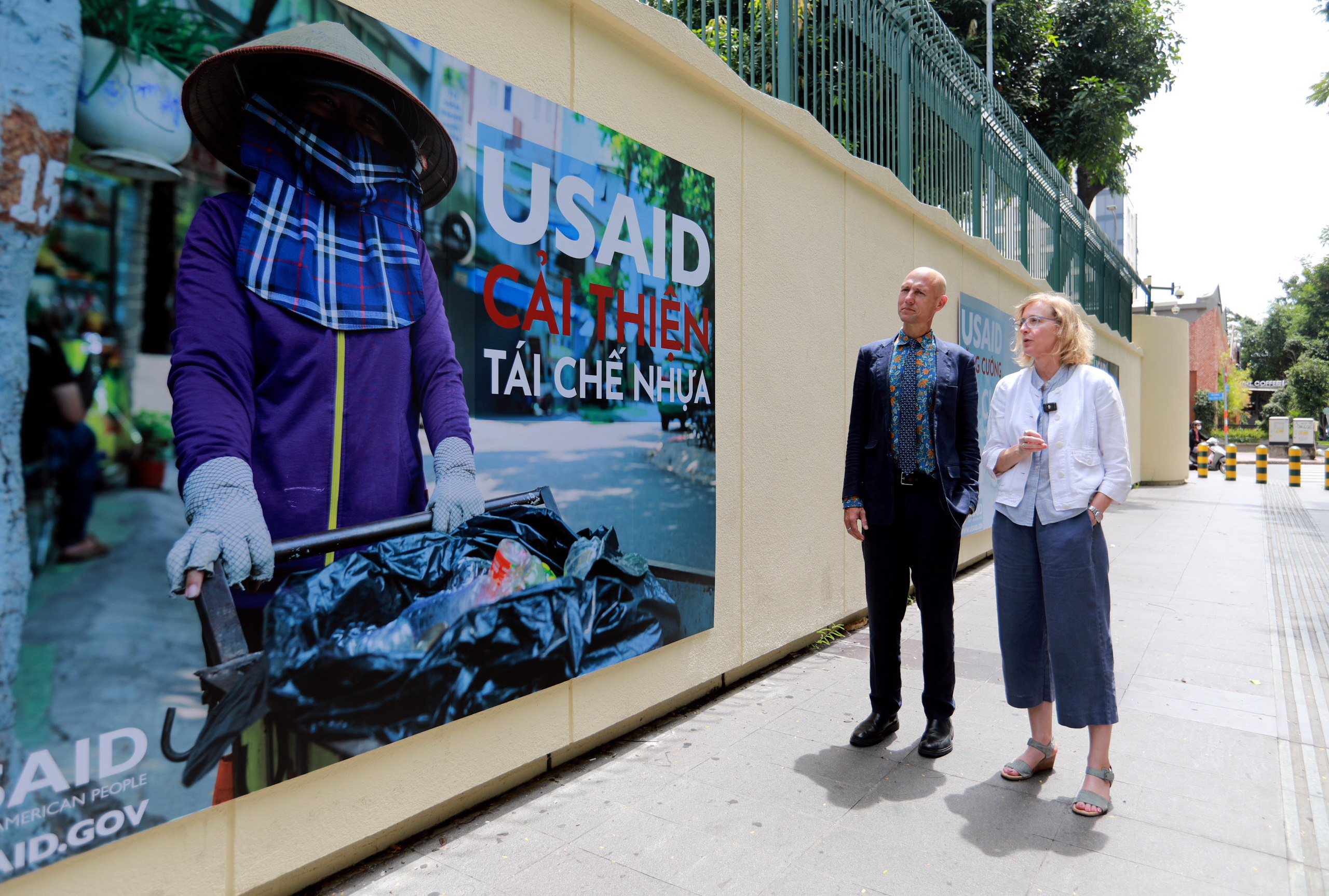
Image of a woman collecting traditional scrap metal
After more than a year and a half, in the latest interview with Thanh Nien on the occasion of the opening of the mural exhibition, she shared: "I think the first and most important thing is to reduce the use of plastic products."
The US consul general admits to being a long-time advocate for reducing plastic waste at work and at home. “One reason for this habit is because of my children. I have two children, 21 and 23 years old. I want to leave a better planet for them and make sure they don’t have to deal with the problems of microplastics, which are extremely harmful to human health,” she said.
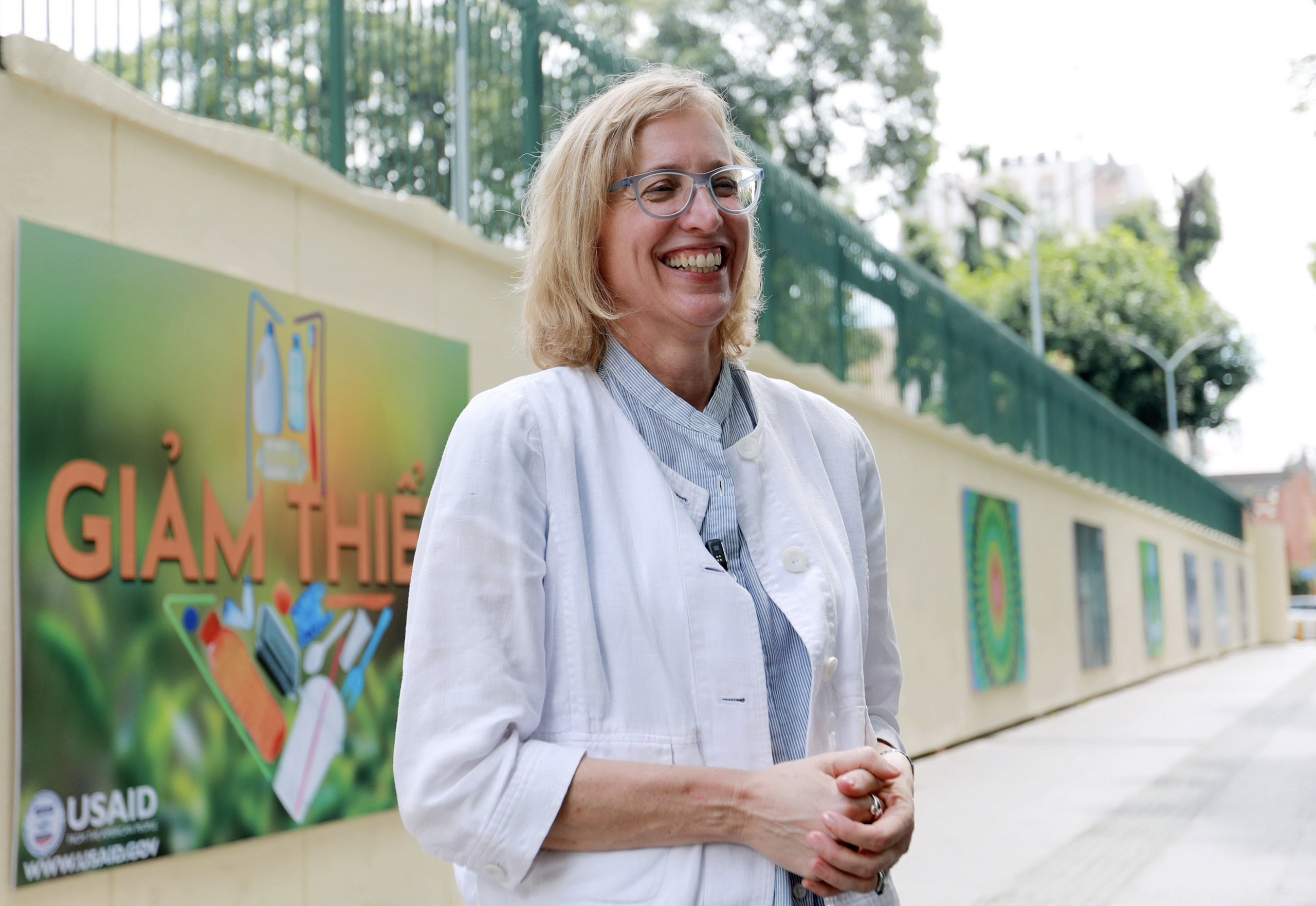
Ms. Susan Burns, US Consul General in Ho Chi Minh City, wants to protect the environment for the future of the young generation.
So, Mrs. Burns always tries to use as little plastic as possible. She always carries a reusable water bottle. If she goes to a cafe, she brings her own cup. She refuses to use plastic water bottles, tries not to buy things in plastic packaging, and carries her own bags when she goes to the market to buy food and vegetables.
She was pleased to discover that the trend of reducing plastic use is happening across Vietnam. "I saw some stores selling refillable products, like shampoo and soap," she said.
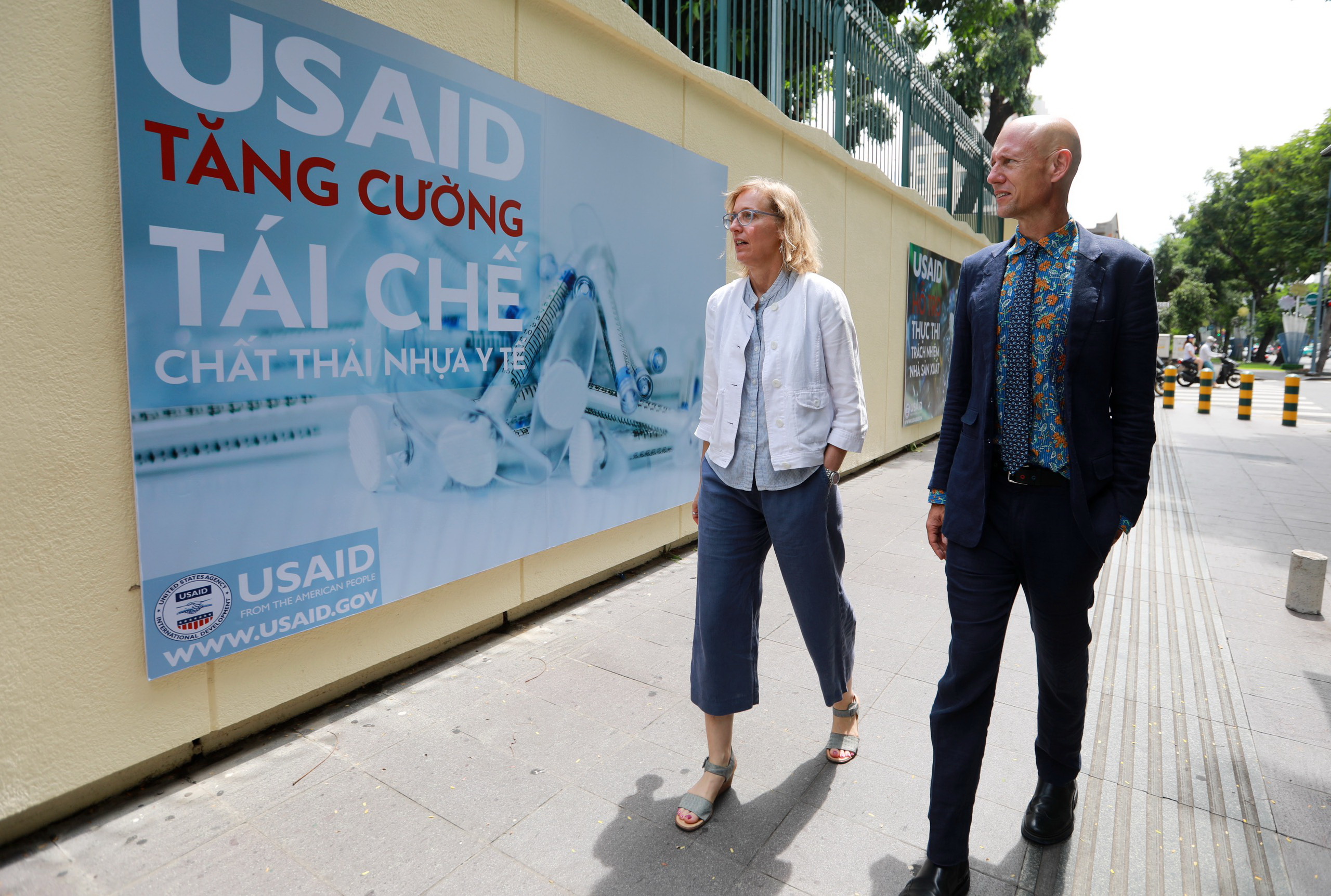
Increasing recycling of medical plastic waste is part of efforts to reduce plastic waste
She also teaches her children to reduce their use of plastic. Her two children grew up following their mother’s diplomatic career in many places, and also witnessed how plastic pollution affects the quality of life in each locality.
Regarding the commitment of the US and Vietnam to reduce plastic waste, the consul general said that the two countries are implementing a number of policies in this direction. According to her, the US currently has specific programs to protect its marine reserves from plastic pollution. Vietnam also has similar programs in places like Phu Quoc and Con Dao.
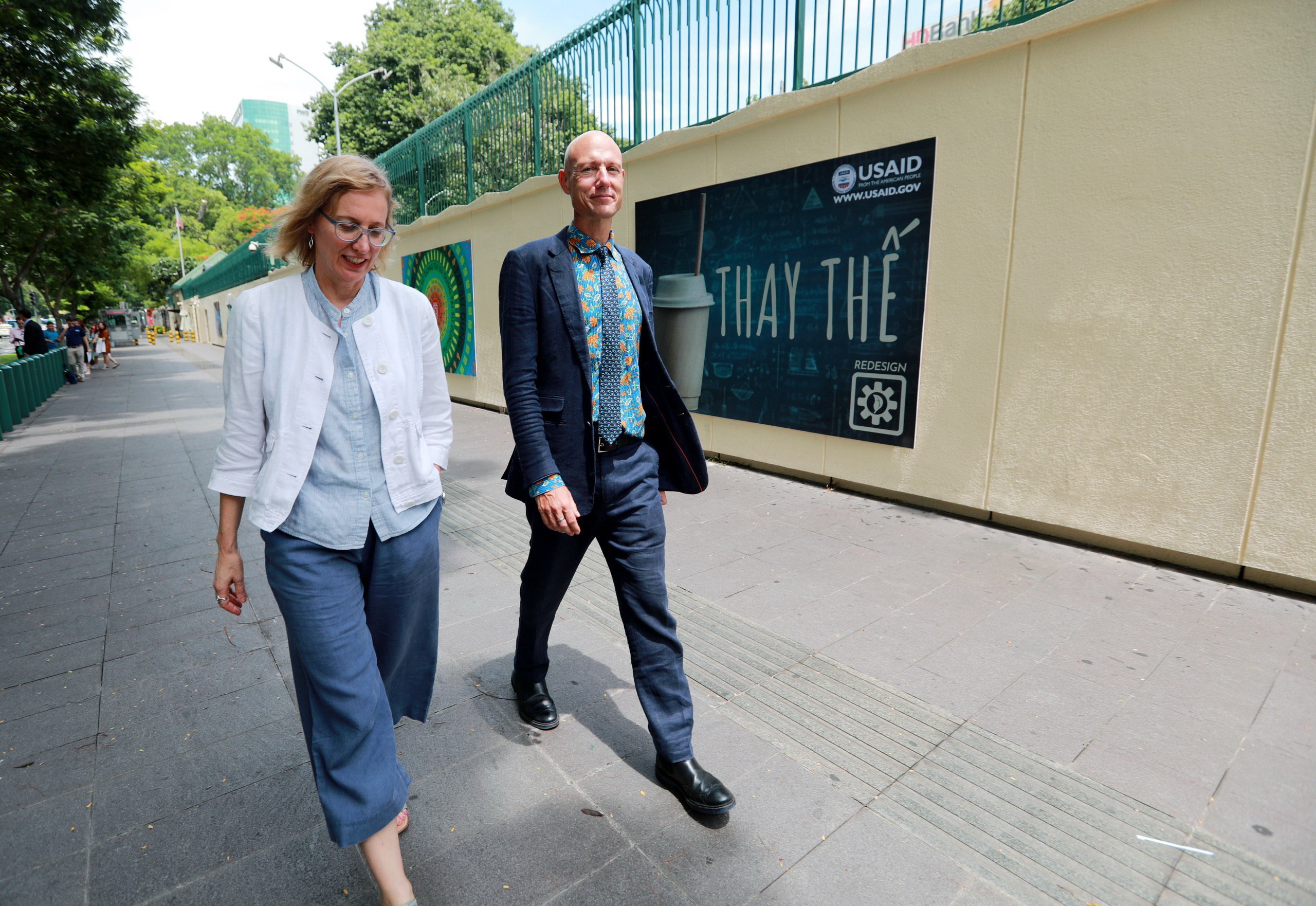
Replace plastic products with more environmentally friendly ones
In response to the need to further this effort, the United States, through USAID, is supporting Vietnam in reducing plastic pollution. Consul General Burns cited an example of an effort to raise awareness among children through a mobile game called “Green Turtle Hero,” which teaches children to better understand the harmful effects of plastic waste on the environment.
In addition, the U.S. Consulate General in Ho Chi Minh City has implemented measures to reduce plastic waste within the consulate premises, while also working with community partners to provide the best support for local efforts, including the Mekong Delta.
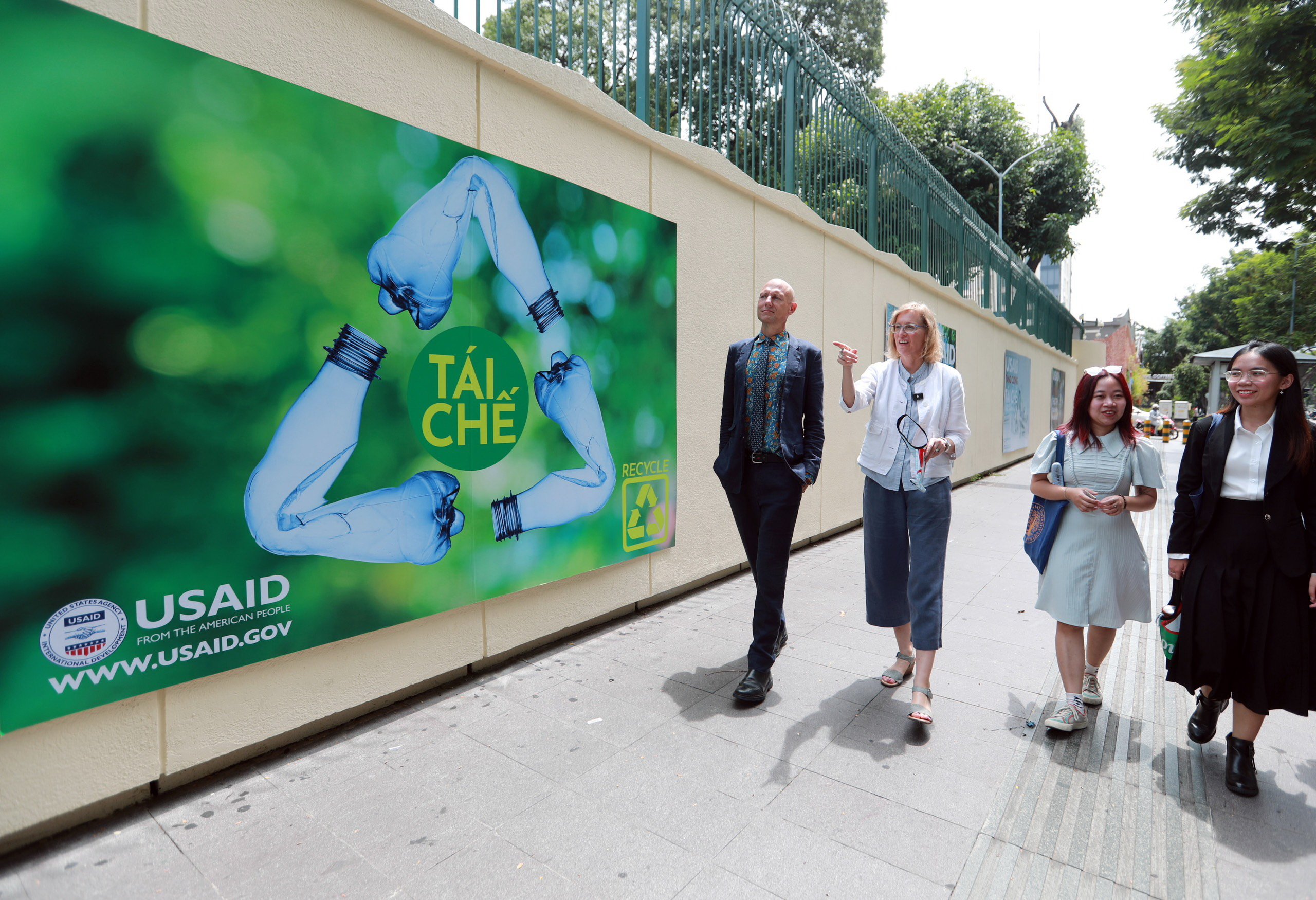
Recycling is an important but still limited step in Vietnam.
The US diplomat praised many young people in Ho Chi Minh City, especially in universities, who are switching to using reusable water bottles instead of disposable plastic bottles.
"However, another challenge is present in coffee drinking culture. Many places still use plastic cups, plastic bags and plastic straws. I think young people can change this habit by buying coffee at places that do not use disposable plastic. If you ask, surely the seller will find a way to adjust to meet the needs of customers," said Ms. Burns.
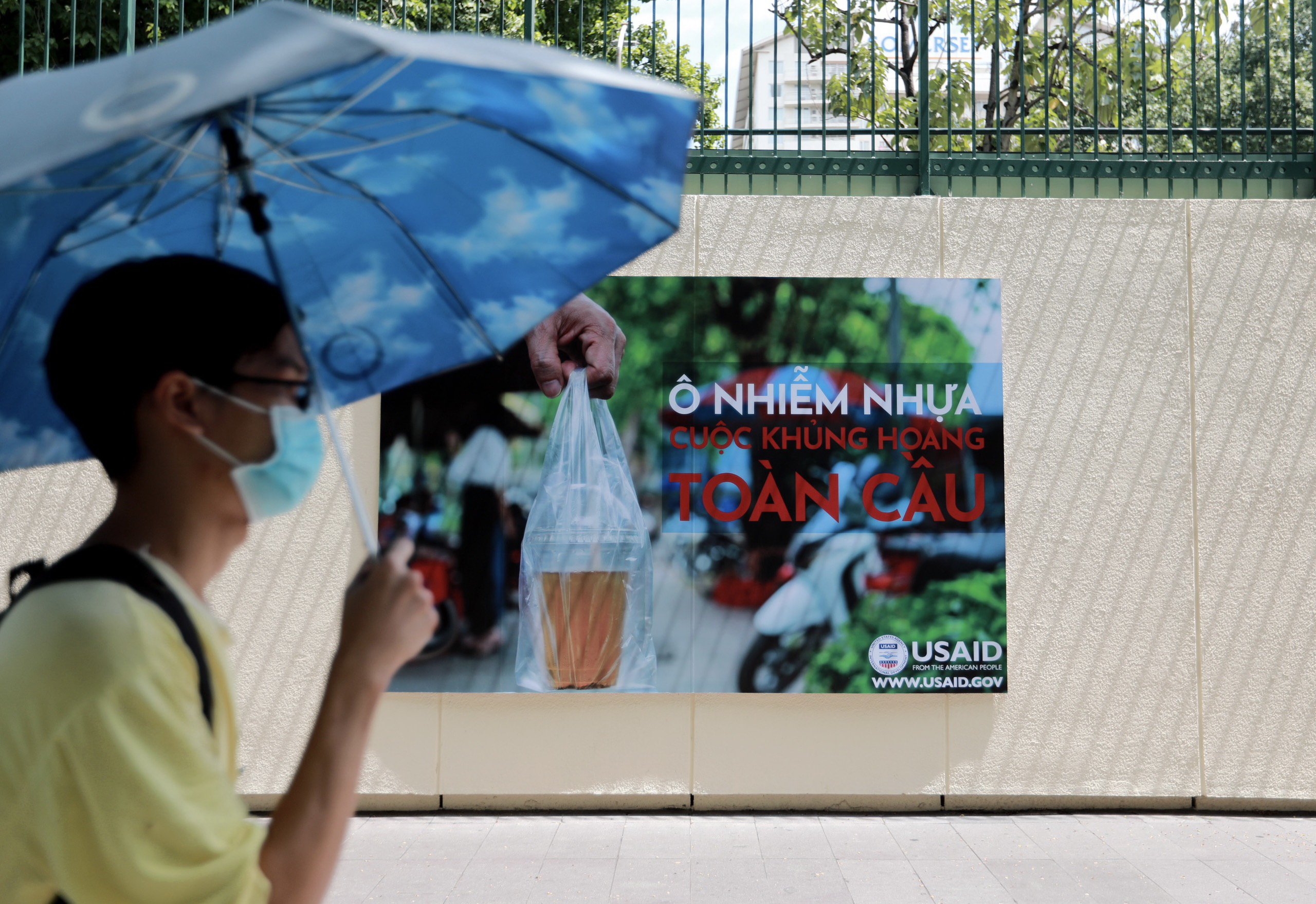
Use reusable bottles instead of plastic cups, wraps, and straws when drinking coffee.
The Power of Youth
Mr. Bradley Bessire, Acting Director of USAID Vietnam, affirmed that efforts to reduce plastic waste are a priority for the US and USAID, accordingly, wants to support Vietnam to raise people's awareness about some types of plastic they use, whether it is plastic bags for cups or plastic straws.
"You know, when you go to a store and you want to buy a can of soda and the first thing the salesperson does is take the plastic bag that the can came in. But do you really need a plastic bag to take the can out of the store?" Mr. Bessire gave an example to show that consumers should think instead of automatically accepting the plastic bag in this case.
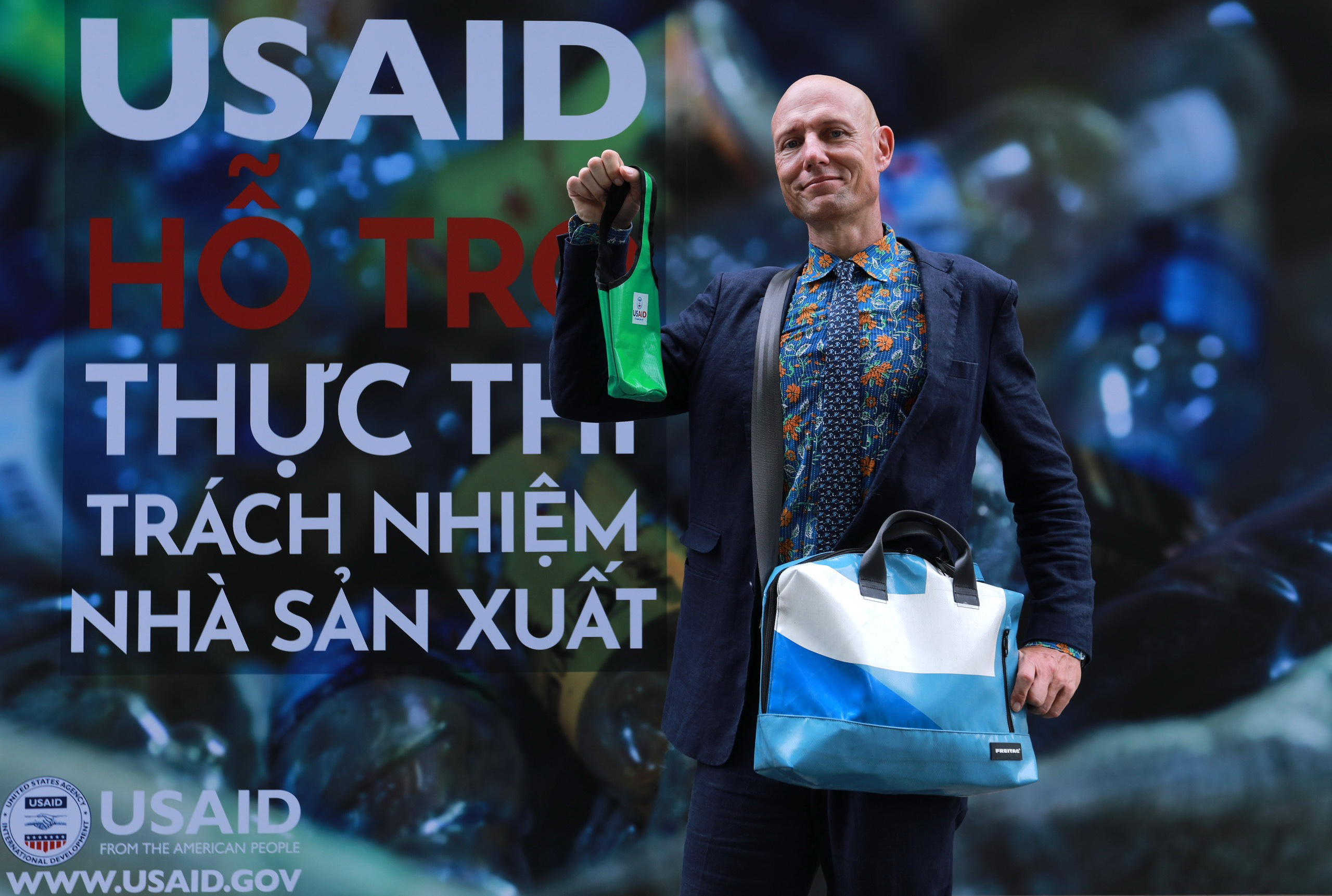
Mr. Bradley Bessire, Acting Director of USAID Vietnam, with plastic bags (made by deaf people) and plastic bags made from recycled plastic
The Acting Director of USAID highly appreciated Vietnam's implementation of Extended Producer Responsibility (EPR), which is the responsibility of manufacturers and importers to manage their product packaging when disposing of them into the environment. This is considered a breakthrough policy towards Vietnam's Green economy.
Besides, Mr. Bessire believes that Vietnam can rely on the youth, one of the greatest sources of hope and inspiration in society. Young people are the ones who come up with ideas to change society for the better, such as making changes in the field of climate change, rescuing endangered animals.
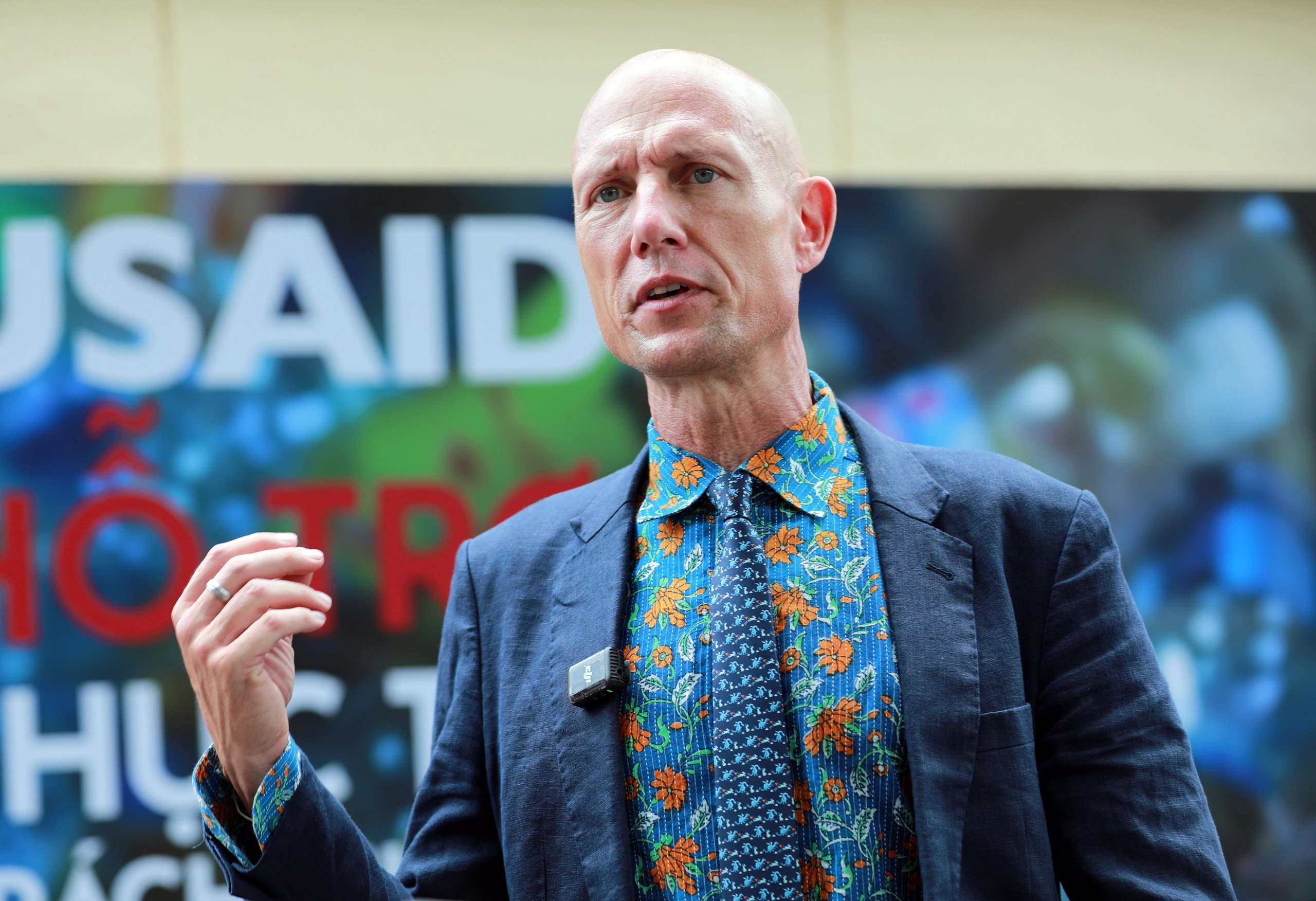
USAID Acting Administrator Bradley Bessire supports Vietnam's efforts to address plastic waste, a global issue
Last year, USAID sponsored Fulbright University Vietnam to host the Southeast Asia Social Impact Project (ASIP) 2023 competition, which seeks to develop leadership and project management skills among young leaders to address social issues that transcend borders in the region. ASIP 2023 focuses on the theme of “Towards Zero Waste”.
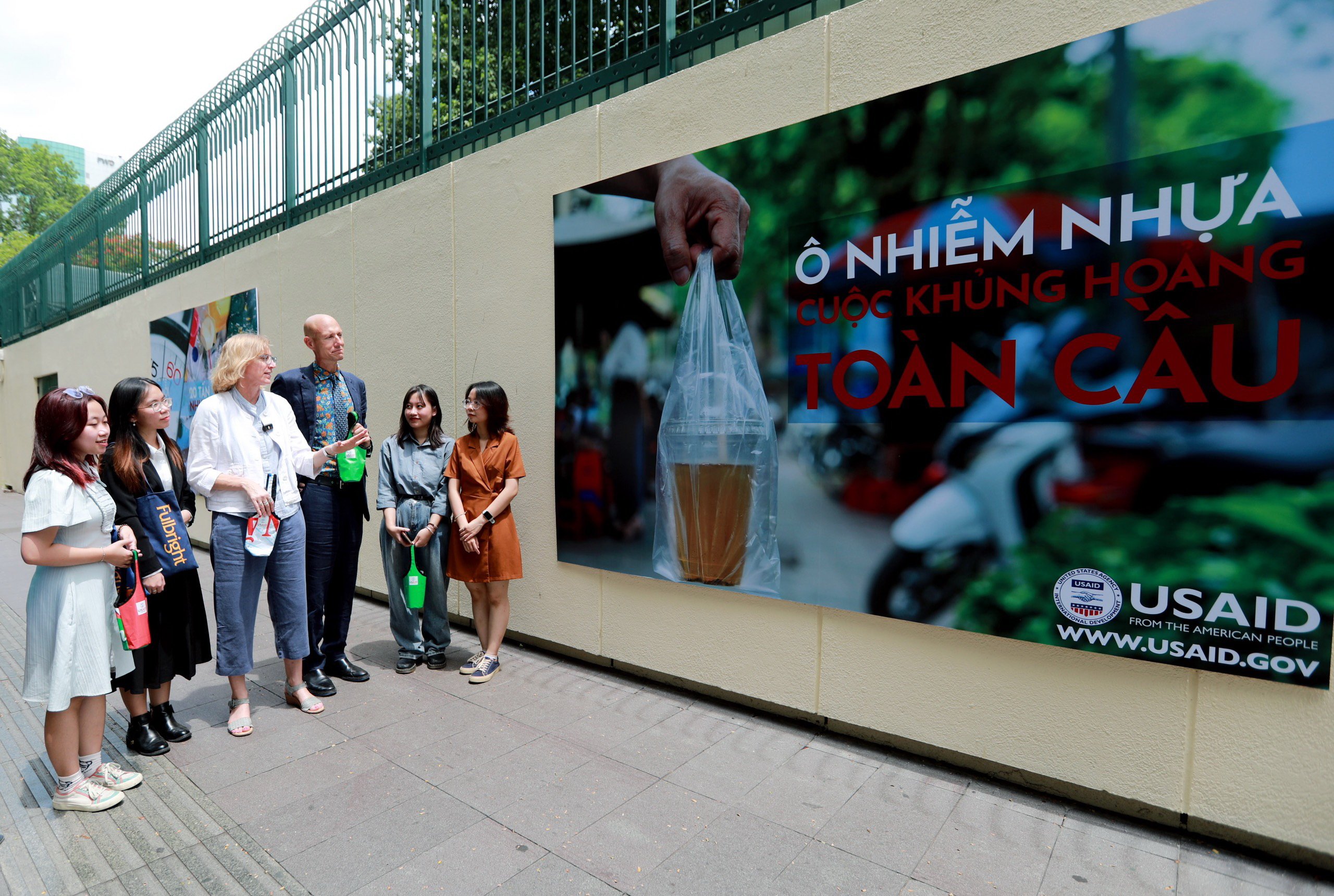
Consul General Burns is particularly concerned about plastic pollution, a global crisis.
By participating in ASIP 2023, student Truong Le Quynh Hoa’s group, who is preparing to enter the 4th year at Fulbright University Vietnam, had the opportunity to receive training, coaching and visit leading companies in the field of zero waste in Vietnam. This was an opportunity for Quynh Hoa and her friends to approach the current situation of waste in Vietnam and to gain a clearer understanding of the views of the student community in particular and young people in general on the issue of plastic waste.
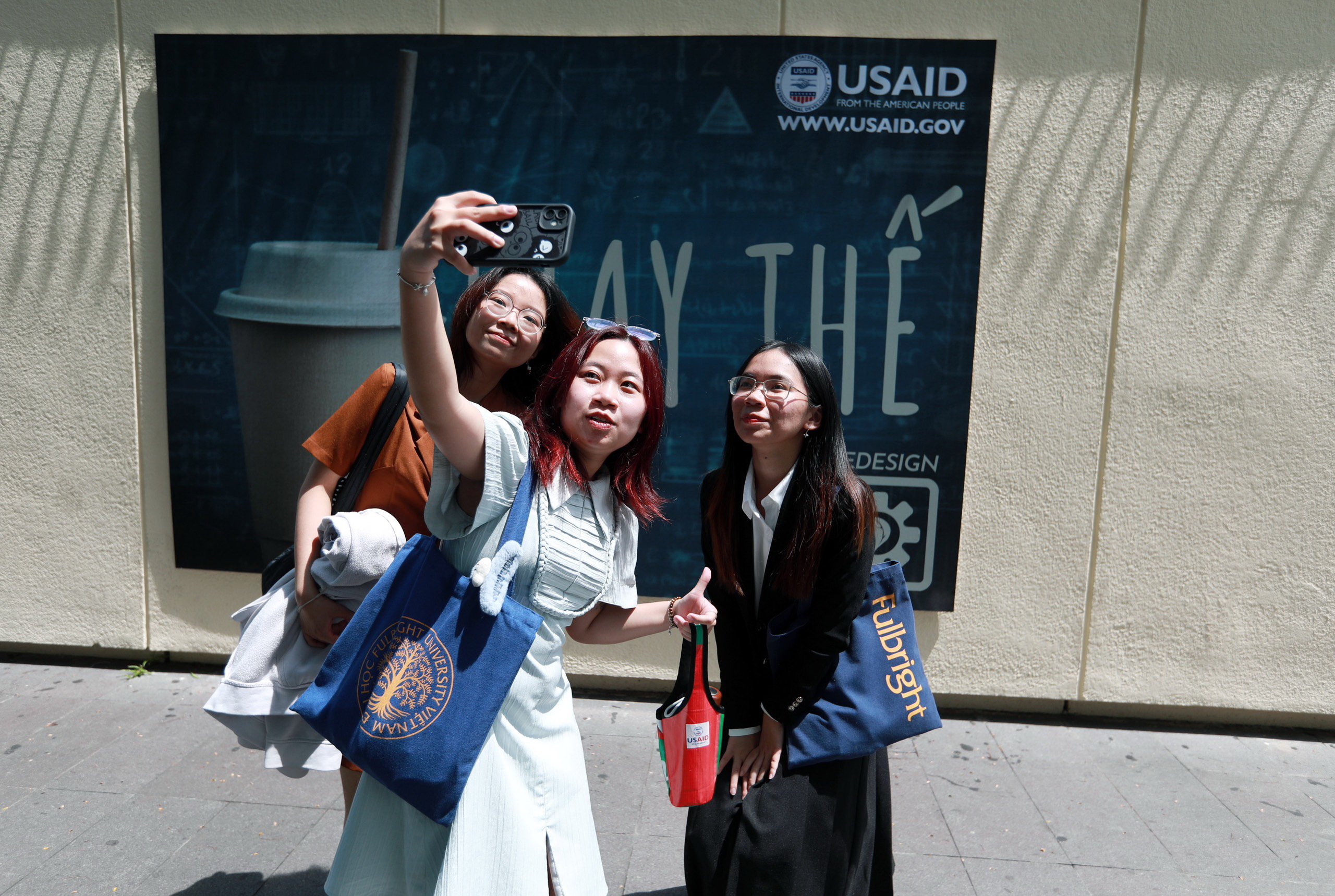
Fulbright University Vietnam students attend mural exhibition
"We want to continue to support Vietnam in making decisions about its future, protecting the environment, protecting species, keeping this country - which for me is one of the most wonderful destinations I have ever visited - clean and safe for its people, as well as for citizens around the planet," Mr. Bessire concluded.
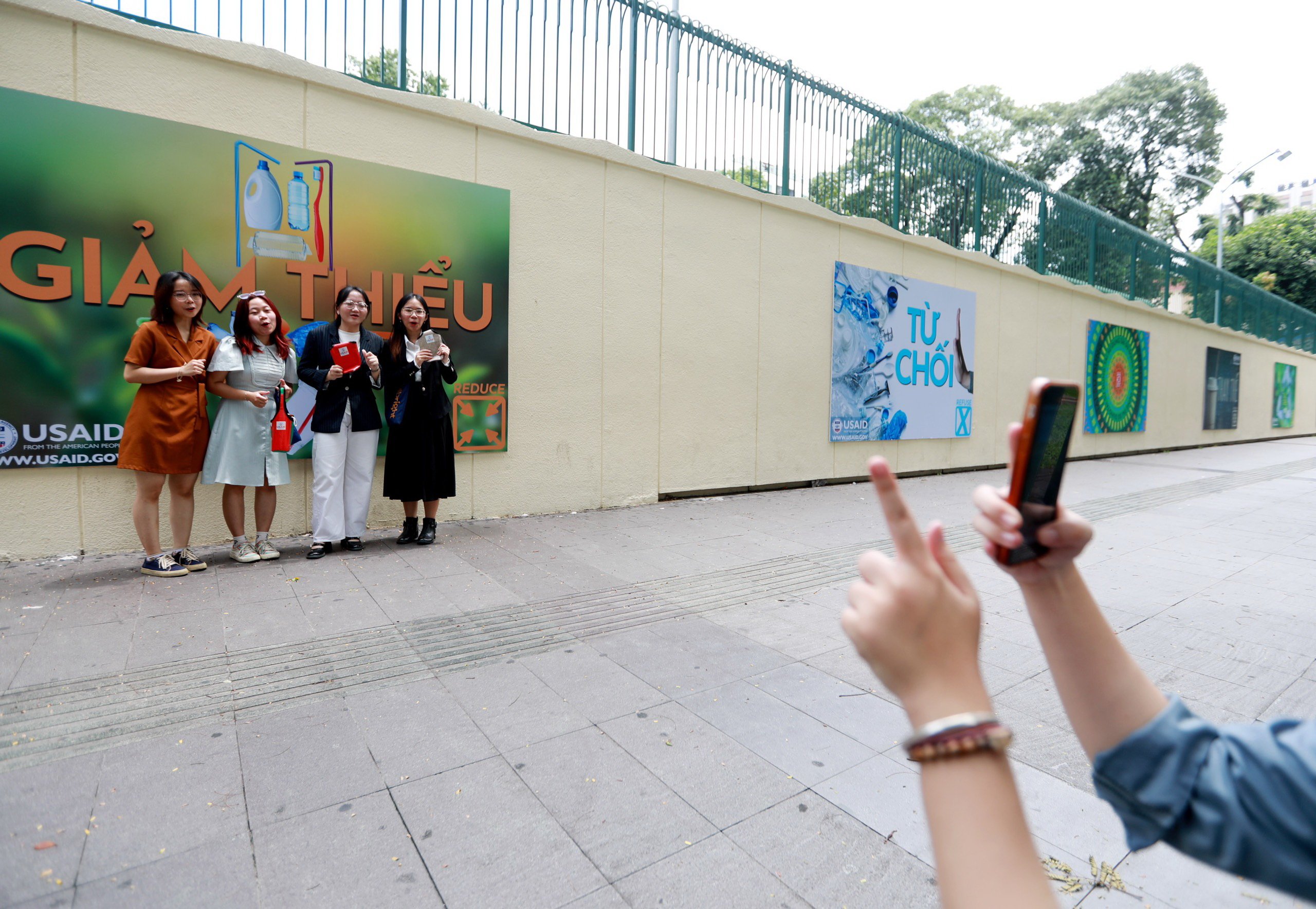
Young generation is now interested in contributing to efforts to reduce plastic waste and protect the environment in Vietnam.
Mural exhibition 'Reduce plastic waste'
The photo exhibition "Reducing Plastic Waste" is organized by the United States Agency for International Development (USAID) to raise awareness of the global plastic pollution crisis. This is part of a broader bilateral cooperation effort to promote low-emission and climate-resilient agriculture, conserve biodiversity, reduce pollution, and strengthen the response capacity of vulnerable communities. The collection includes 10 murals, providing striking images that highlight the current state of plastic pollution in Vietnam and suggest measures to reduce plastic waste. The exhibition will run from now until the end of the year.
Source: https://thanhnien.vn/my-viet-chung-tay-trong-cuoc-chien-chong-o-nhiem-nhua-185240629112751381.htm



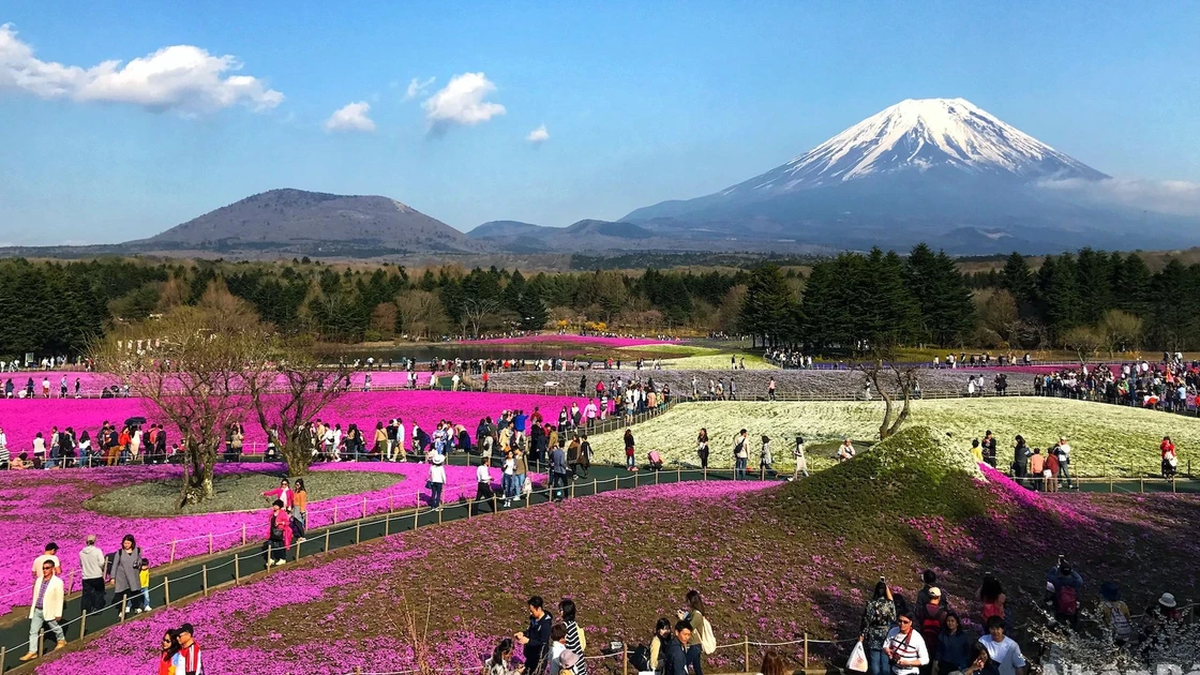
![[Photo] General Secretary concludes visit to Azerbaijan, departs for visit to Russian Federation](https://vphoto.vietnam.vn/thumb/1200x675/vietnam/resource/IMAGE/2025/5/8/7a135ad280314b66917ad278ce0e26fa)
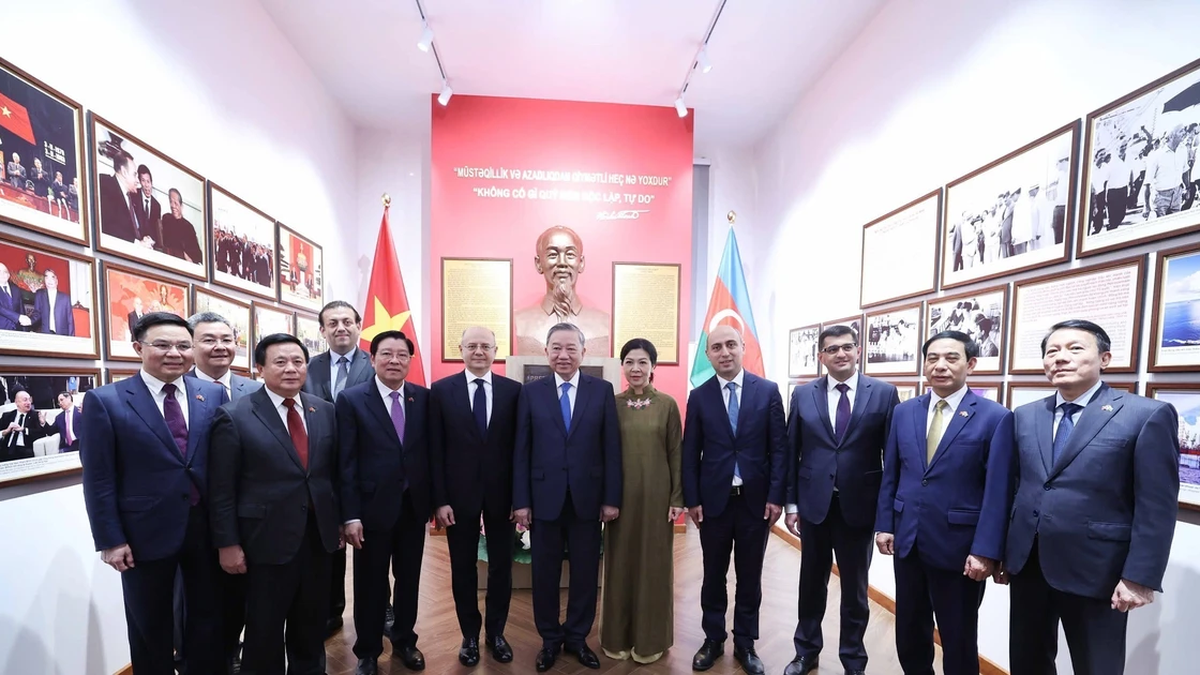

![[Photo] General Secretary To Lam receives leaders of typical Azerbaijani businesses](https://vphoto.vietnam.vn/thumb/1200x675/vietnam/resource/IMAGE/2025/5/8/998af6f177a044b4be0bfbc4858c7fd9)





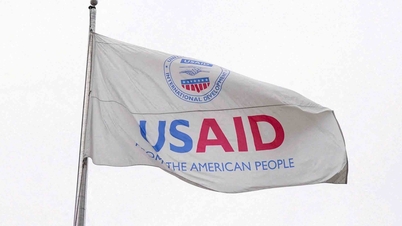
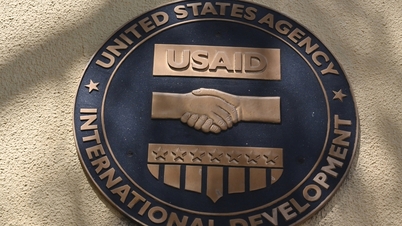
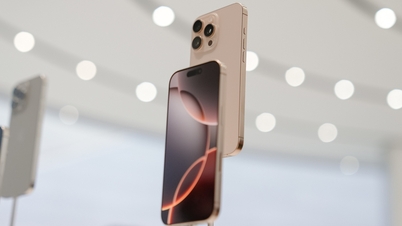
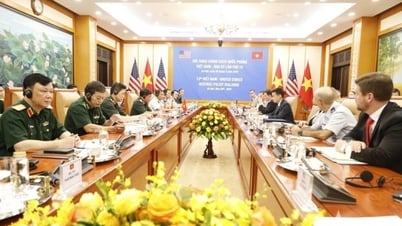
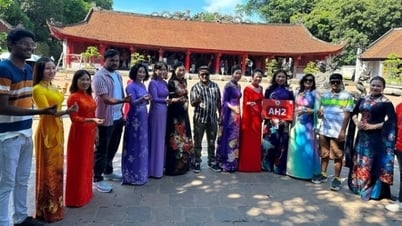
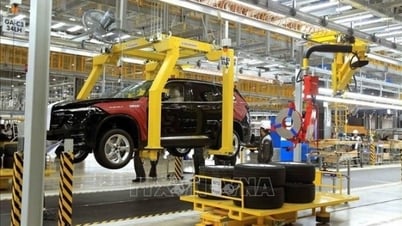
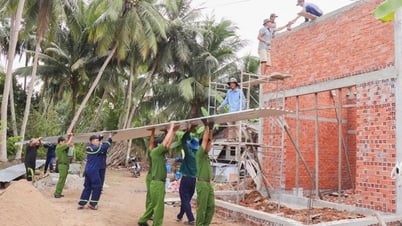
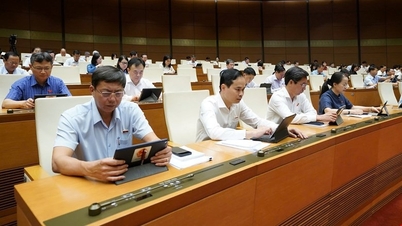
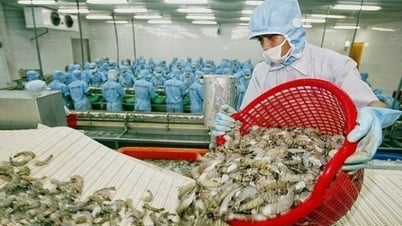




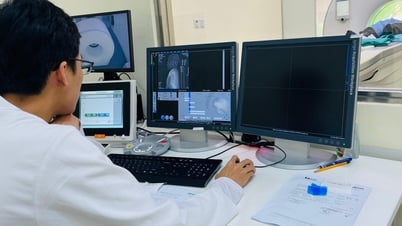
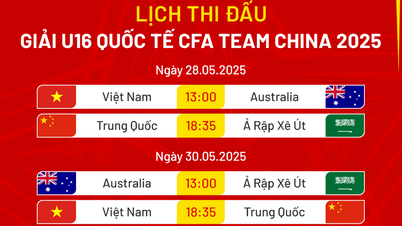
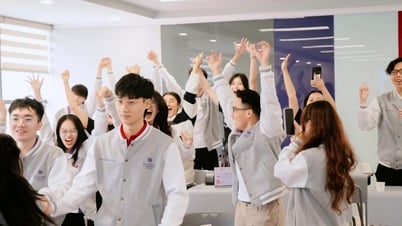
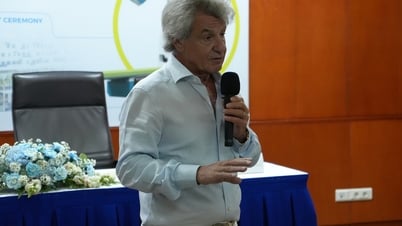
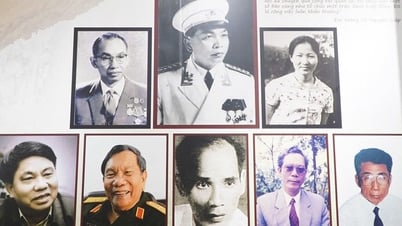
































![[Photo] Prime Minister Pham Minh Chinh talks on the phone with Singaporean Prime Minister Lawrence Wong](https://vphoto.vietnam.vn/thumb/402x226/vietnam/resource/IMAGE/2025/5/8/e2eab082d9bc4fc4a360b28fa0ab94de)













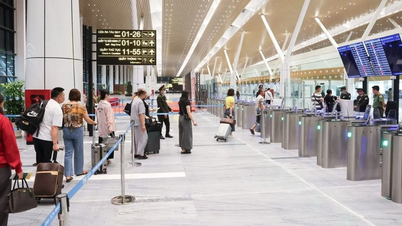

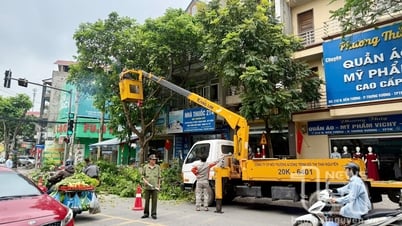

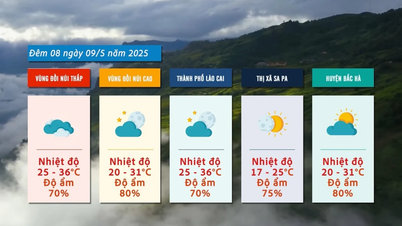


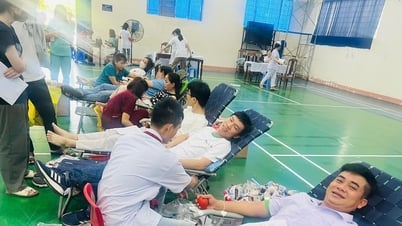












Comment (0)